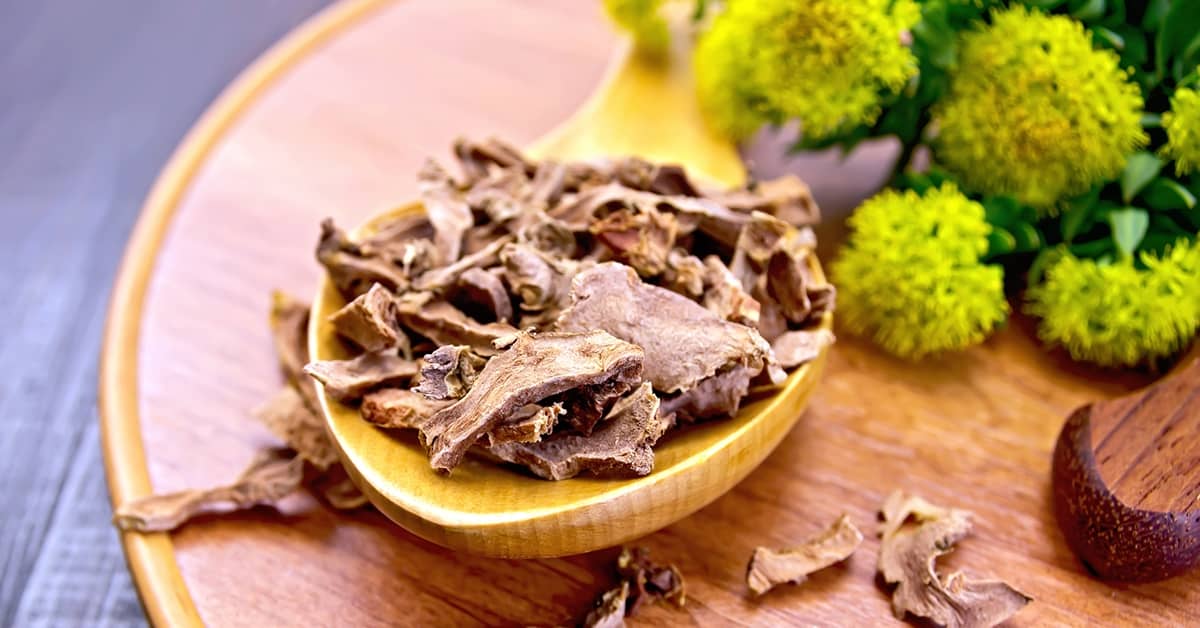
But I think I've come across an anti-aging exception to that rule: the herb rhodiola. Here's what has me so excited.Rhodiola rosea, also known as golden root, is a classic adaptogen, a substance that adjusts one of your body's processes either up or down, as needed.
For example, if your immune system is too amped up, leading to harmful inflammation, an adaptogen may calm it down. If your immunity is too laid back, and allowing you to get sick too often, an adaptogen may get it back on its feet so it resumes its duties at protecting the body against pathogens.
In fact, a good adaptogen may tune up several physiological processes at the same time. And that describes rhodiola.
It's long been used in Asia for... well, for just about everything. It has been consumed to help with tiredness and fatigue, anemia, stomach issues, nervous system problems, impotence, altitude sickness, depression - and a whole host of other discomforts.1 It's like a whole medicine cabinet in one plant.
Even though it may seem hard to accept that rhodiola can produce so many different wonderful benefits, researchers have begun to confirm the truth of those claims.
A Shocking 24% Increase in Lifespan
Among its wide range of benefits, rhodiola, according to lab research at the University of California, Irvine, may be a potent life-extender and fight the effects of aging.One of the intriguing things about rhodiola's longevity benefits, say the researchers, is that it apparently extends life by affecting cells in ways that differ from the only other proven way to extend life - drastically cutting calories.
But even after their analysis, the scientists are not sure exactly what molecular process rhodiola uses to prolong longevity.They found that in the lab, rhodiola extended animals' lifespan by a whopping 24 percent. And it not only added extra longevity in animals that were already living longer from calorie restriction but also in those that were genetically unable to get life-extending benefits from calorie cutting.2 And here's an added benefit - the animals receiving rhodiola were also more physically fit longer into old age. And when both young and old animals in the lab started consuming rhodiola - they all lived longer. It's never too late to start.
I need to add that an animal study doesn't mean it will work for humans in the same way. But I do know from other studies that rhodiola has enormous medicinal power aside from any life-prolonging benefits it may have.
Powerful Gene-Booster
Other researchers have shown why rhodiola might be able to produce a wide range of benefits. Swedish and German scientists examined how rhodiola influences the way genes behave in cells - what are termed epigenetic effects.Their analysis showed that the natural chemicals in the herb affect a long list of processes. In these lab tests of rhodiola, 336 genes increased their activity (were "up-regulated") while 295 slowed their actions (were "down-regulated).3 The researchers report that these epigenetic activities were related to improved function of the cardiovascular system, shifts in metabolic processes (for instance, how the body regulates blood sugar) along with hormonal and endocrine health and brain activities that affect behavior and emotions.
They also found that rhodiola could potentially help memory by facilitating the way neurons link up with other neurons in neural networks. Although their research couldn't pin down exactly how rhodiola changes brain function, their evidence shows that it probably produces molecular effects related to brain plasticity in the hippocampus - the brain's memory center.4 Plasticity is the ability of brain tissue to shift the links between neurons to form updated networks. This is central to learning new information and remembering it.
Other rhodiola benefits include:
- Helping the brain resist stress while boosting memory.5
- Fighting off moderate depression.6
- Aiding in the treatment of heart disease and the chest pain of angina.7
- http://cms.herbalgram.org/herbalgram/issue56/article2333.html?ts=1514863094&signature=65
96c88c48c307035d0f34f4c3a23622&ts=1514908348&signature=1193f0ed7d501771699192ed484609c8 - http://journals.plos.org/plosone/article?id=10.1371/journal.pone.0063886
- https://www.ncbi.nlm.nih.gov/pubmed/25172797
- https://www.sciencedirect.com/topics/neuroscience/ephrin-receptor
- https://www.ncbi.nlm.nih.gov/pubmed/27720849
- https://www.sciencedirect.com/science/article/pii/S0944711315000331
- https://www.ncbi.nlm.nih.gov/pubmed/25146085
